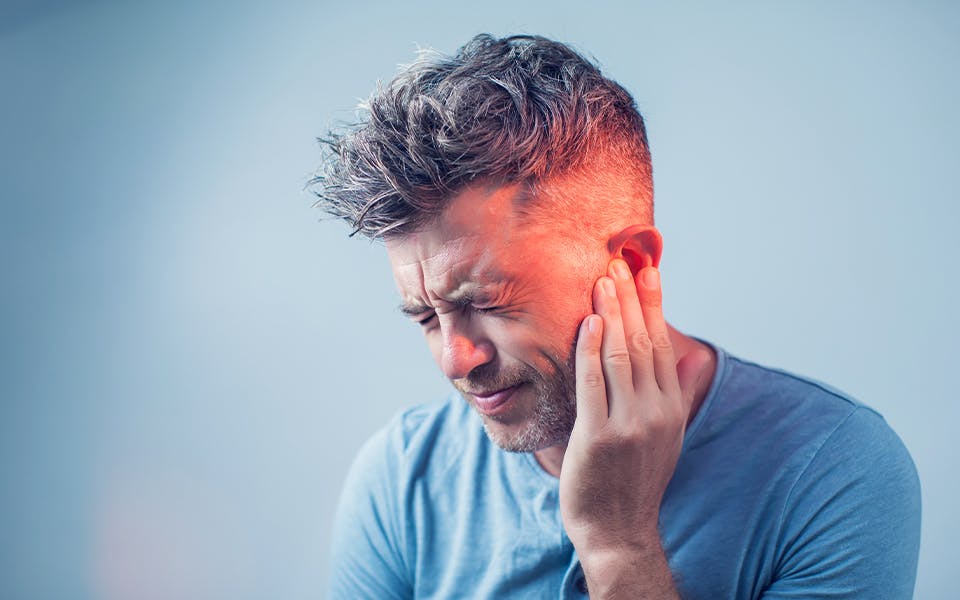Have you ever noticed a plugged sensation in your ears when you have an ear infection?
It’s common to experience temporary hearing loss during an ear infection. However, you should seek medical attention if you have recurring infections to avoid permanent hearing damage.
The Eustachian Tube
The Eustachian tube connects your nose, throat and ears and is the most common cause of ear infections. It’s not unusual to get an ear infection after developing a cold, allergies or the flu. Germs can transfer from the Eustachian tube and settle in the middle ear, causing inflammation and discomfort.
Types of Ear Infections
Acute otitis media: This is the most common type of ear infection. It occurs when the Eustachian tube becomes infected with a bacteria or virus, resulting in inflammation and pain in the middle ear.
Otitis media with effusion: Mucus and fluid buildup linger in the Eustachian tube and middle ear after an infection has healed.
Chronic suppurative otitis media: Complications from repeat ear infections damage the eardrum, resulting in discharge from the middle ear.
Adhesive otitis media: This type of ear infection occurs when the eardrum collapses and adheres to the structures of the inner ear. It happens when the Eustachian tube stops functioning properly for an extended period.
Otitis externa: Also known as Swimmer’s ear, this infection is caused by bacteria-infested water getting trapped in the outer ear canal.
RELATED ARTICLE: Fuzzy Hearing Aid? Here’s Why Your Hearing Aid May Sound Weak
Symptoms of Ear Infections
- Fever
- Pus-filled or bloody ear drainage
- Hearing loss
- Ear pain, swelling and pressure
- Balance issues
- An inability to lie on the affected ear
- Diarrhea and vomiting
When to See a Doctor
Ear infections can cause temporary hearing loss because the swelling in the middle ear prevents sound vibrations from traveling to the inner ear. Your body can heal ear infections on its own, but there are some instances when you should seek help from an audiologist or ENT specialist.
These are signs of serious infection and should be addressed by your doctor:
- Fever higher than 102° F
- Fluid drainage
- Facial swelling
- A lump near the outer ear
- Symptoms lasting longer than three days
RELATED ARTICLE: How to Find the Best Audiologist Near You
Treating Ear Infections
Over-the-counter medication can treat ear pain and swelling, so consult your doctor to determine which option is best for your condition. Applying hot and cold compresses to your ear eases inflammation and discomfort.
Gargling salt water will clear your Eustachian tube of lingering germs. You may also need to temporarily adjust your sleeping position until your ear infection has healed.
Because ear infections usually resolve themselves, doctors reserve antibiotics for severe cases to avoid developing antibiotic-resistant bacteria and viruses. However, your doctor may prescribe medication and eardrops to address your symptoms.
Depending on the type of ear infection, your doctor could conduct a myringotomy, creating a small hole in your eardrum to drain trapped fluid.
The Hearing Associates team is committed to protecting your hearing by providing expert hearing treatment and evaluations. Contact us online or call 888-760-2032 to schedule your appointment.


